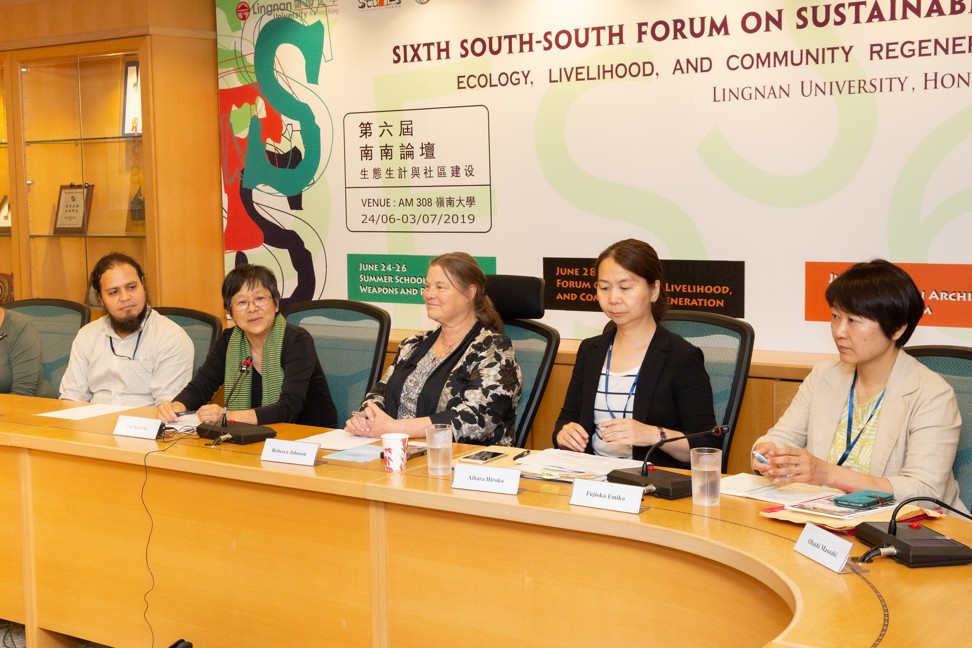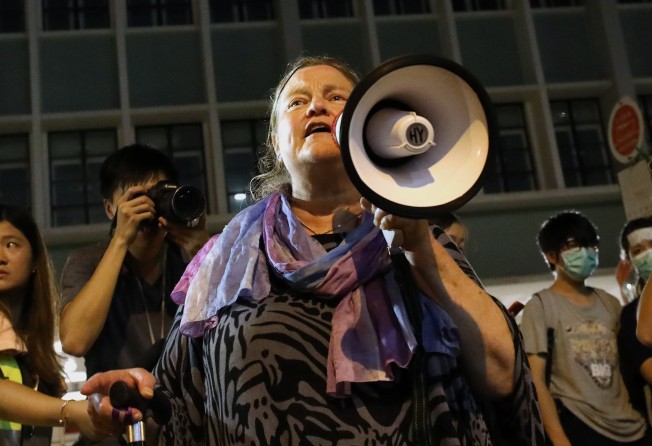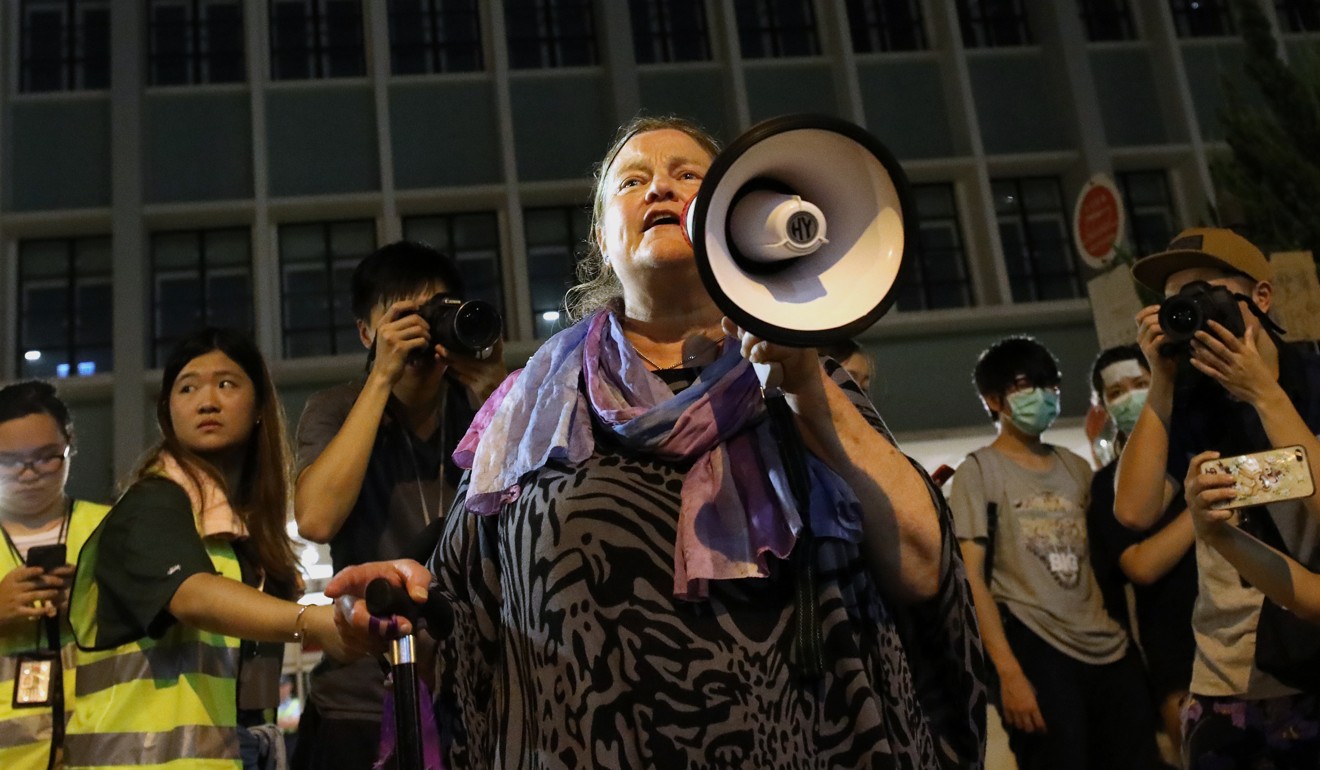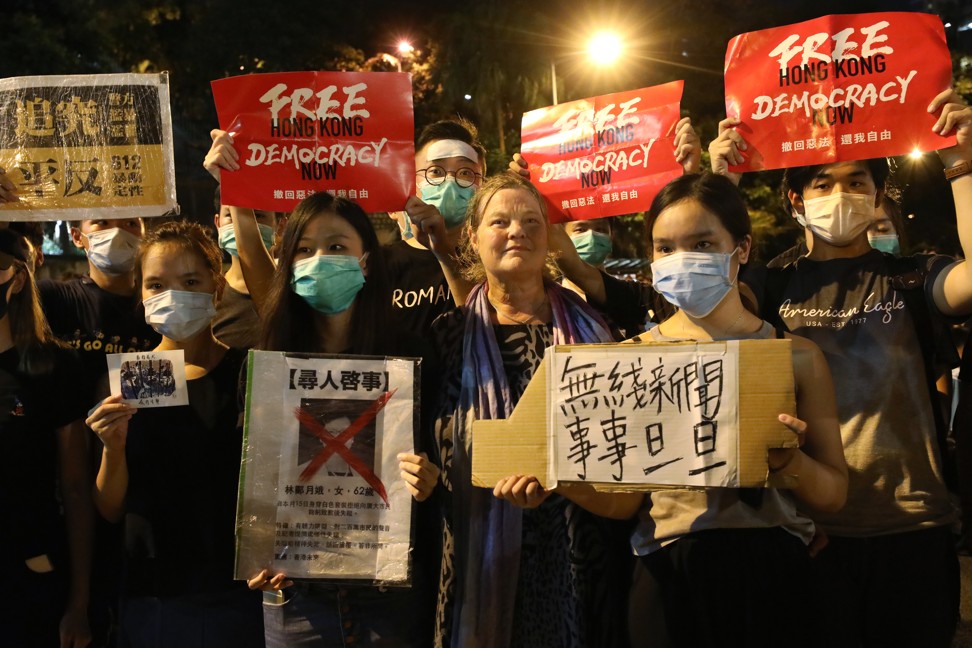
Trump should give Kim a chance to rebuild economy in exchange for nuclear disarmament, says Nobel peace laureate Rebecca Johnson
- ‘Kim can see the writing on the wall’ of failing to rejuvenate the North Korean economy, says Rebecca Johnson, a vocal advocate for a nuclear-free world
- She hopes Trump will break with conventional wisdom and sideline hawkish advisers who advocate for greater pressure and sanctions

Rebecca Johnson, the Nobel Peace Prize-winning activist and feminist, is no fan of Donald Trump. But when it comes to the United States president’s efforts to engage North Korean leader Kim Jong-un, the founding president of the International Campaign to Abolish Nuclear Weapons is willing to give him the benefit of the doubt.
Amid reports that talks are underway for a third summit between the leaders, Johnson believes Trump must break with conventional wisdom and follow his instincts – namely, offer Kim the chance of a prosperous future for his impoverished country in exchange for relinquishing his nuclear arsenal.
“Trump actually gets that this is the thing Kim needs most of all: he wants to survive himself, with his life, he wants his regime to survive, because he is following in his father’s and grandfather’s footsteps,” said Johnson, who was in Hong Kong as a keynote speaker at Sixth South-South Forum on Sustainability from June 28-30.
“But [Kim] seems to recognise that it cannot survive as it is, so he has to change, and he would very much welcome not just a lifting of sanctions, but investment.”
Trump is planning to sit down for talks with South Korean President Moon Jae-in on Sunday in Seoul, where they are expected to discuss ways to resume denuclearisation talks following the collapse of his second summit with Kim in February.
On Saturday, Trump tweeted an invitation to Kim to meet at the demilitarised zone that separates the North and South.
North Korea responded by saying it was “a very interesting suggestion”, but Pyongyang had not received “an official proposal”, Korean Central News Agency reported, quoting first Vice Foreign Minister Choe Son-hui.
Johnson, a British activist who has been campaigning for peace and nuclear disarmament since the 70s, has a long association with the Korean peninsula, having first visited Seoul in 1980 and been moved by the decades-long military stand-off between North and South.
“The human costs of the divisions are very, very high,” she said.
After decades of failed US policy, Johnson hopes Trump will sideline hawkish advisers, such as National Security Adviser John Bolton, who advocate for greater pressure and sanctions despite such measures failing to move Pyongyang in the past.
“[Trump] needs to have both more intelligent advice and … he needs to trust his instincts that Kim Jong-un can see the writing on the wall for him of failing to rejuvenate the North Korean economy,” she said.

Challenging orthodoxy is at the heart of Johnson’s advocacy, which has taken her from Greenham Common Women’s Peace Camp, established in 1982 to protest deployment of nuclear weapons at an air force base in Britain, to the streets of Hong Kong this week to stand in solidarity with the ongoing anti-extradition protests.
Johnson rejects the notion that any country has a legitimate claim to nuclear weapons. That includes the five countries – the US, China, Russia, Britain and France – that are recognised as nuclear weapons states under the Treaty on the Non-Proliferation of Nuclear Weapons (NTP) that took force in 1970.
This [Treaty on the Prohibition of Nuclear Weapons] could be a very proud, high-status way for Kim Jong-un to rejoin the international community by giving up its nuclear weapons
The 2017 Nobel laureate is among the most vocal advocates for the ratification of the Treaty on the Prohibition of Nuclear Weapons, which includes a framework for nuclear-armed states to hold negotiations leading to the elimination of their arsenals.
The treaty, which was finalised in 2017, currently has 23 parties, none of them nuclear-armed, and requires at least 50 participants to take effect. Unlike the NPT, the treaty does not make a distinction between recognised and non-recognised nuclear states.
Johnson is adamant that a non-discriminatory approach that does not create pariah states from the get-go offers the best hope of a nuclear weapons-free world.
“Nobody would be humiliated in signing a prohibition that is equally applicable, which does not treat them as violators before they have even had a chance to do the treaty, and which provides them with a whole lot of protections and security within it,” she said.
“This treaty could be a very proud, high-status way for Kim Jong-un to rejoin the international community by giving up its nuclear weapons.”
In Hong Kong, Johnson has been inspired by the spirit of protests that have seen hundreds of thousands, perhaps millions, march against a controversial extradition bill in recent weeks.
On Thursday, she joined demonstrators outside police headquarters in Wan Chai, telling them: “What should be yours must be yours. No government has the rights to take that away.”
Even though nuclear weapons have continued to spread around the world since she began campaigning, she has rarely been discouraged or second-guessed the power of protest. The one exception has been watching Brexit convulse her native Britain.
“We do have to protest it, but I do feel hopeless sometimes, at seeing what is happening to the British people,” she said, expressing dismay at the demonisation of migrants and divisions that have followed the UK’s vote to leave the European Union. “So these are protests I have to engage in, but I don’t enjoy them at all.”
But after four decades, Johnson has no plans to put her placard down.
“I don’t know what could ever make me stop.”
